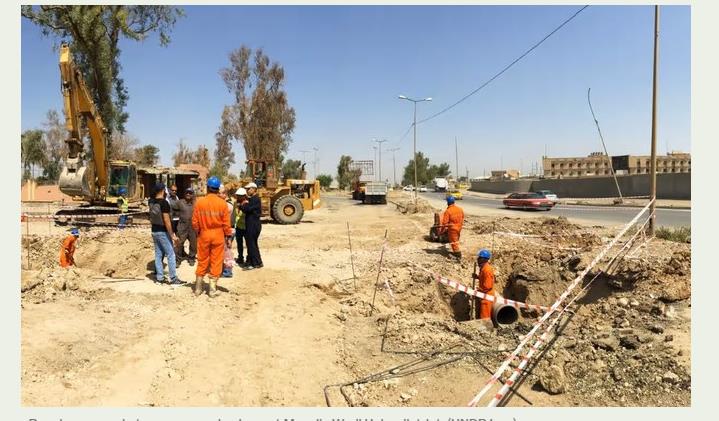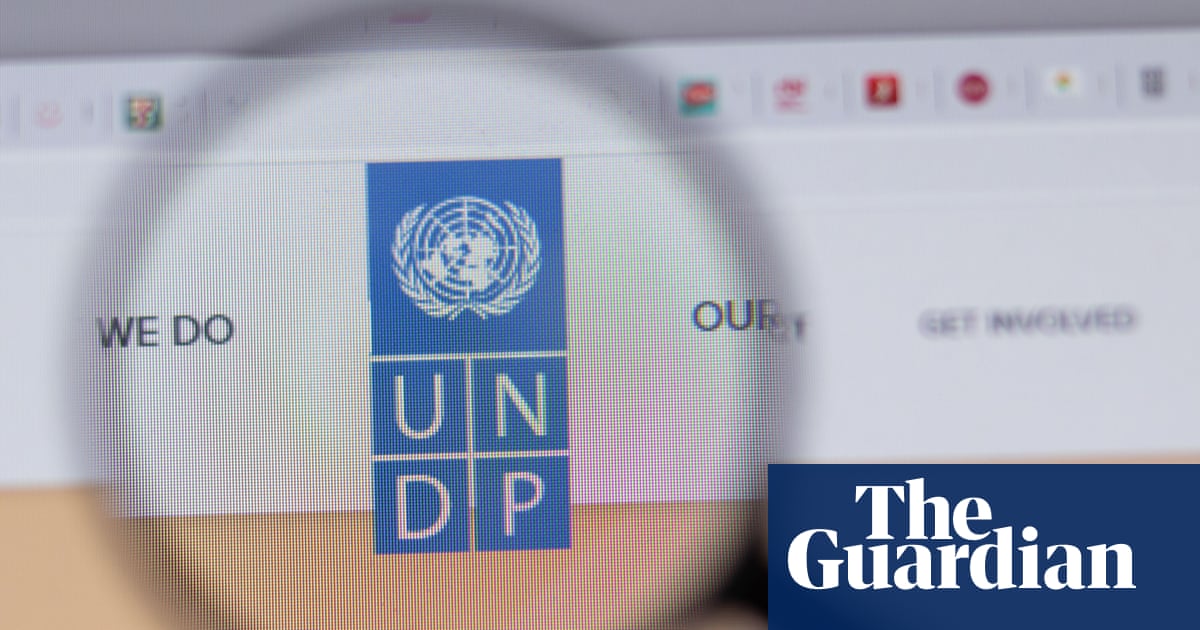
Funding Facility for Stabilization employees take off-the-books kickbacks in cahoots with govt officials: Guardian
UN Development Programme has taken credit for other organizations’ work
LONDON: UN staff in Iraq are asking for bribes from businesses in return for help winning reconstruction projects in the country, The Guardian reported on Monday.
The newspaper revealed allegations of corruption at the UN’s Funding Facility for Stabilization, a scheme launched in 2015.
The facility, backed by the UN Development Programme, has received around $1.5 billion from 30 donors, including the UK government.
It operates directly in Iraq away from the government, as the country has significant corruption issues.
However, The Guardian said interviews with “more than two dozen current and former UN employees, contractors, Iraqi and western officials” revealed that the UN is entwined in a “culture of bribery that has permeated Iraqi society since Saddam Hussein’s overthrow in 2003.”
Interviewees, who all spoke on condition of anonymity, described a situation in which UN employees kept “cushy salaries” while “colluding with government officials who benefit financially to identify new projects,” with progress reports often “embellished” to justify demanding more money down the line.
The newspaper said seven people interviewed confirmed that bribes of up to 15 percent of the value of various contracts have been demanded by UNDP staff in return for assistance overcoming the program’s contract bidding system.
One contractor told The Guardian: “Nobody can get a contract without paying. There’s nothing in this country you can get without paying.”
A UNDP employee told the newspaper that everything is done in person to avoid being caught, and deals are backed by wealthy and powerful Iraqi figures — often with ties to the government — who also receive a cut, along with other government officials selected to oversee project implementation.
UNDP said it has “zero tolerance for fraud and corruption,” adding: “This policy applies equally to UNDP staff members, as well as other personnel, vendors, implementing partners, and responsible parties engaged by UNDP.
“Any allegation of bribery, corruption, or fraud is thoroughly assessed and, where appropriate, investigated by UNDP’s independent Office of Audit and Investigation.”
The Guardian said it found that significant UNDP funds have been spent on redundancies and vast overhead costs, with interviewees saying the program has expanded far beyond its original remit to justify its existence and cover for the government’s failure to successfully rebuild the country.
The Guardian also said UNDP has claimed responsibility for improvements in Iraq carried out by other organizations, citing an example of a medical facility in the north of the country damaged in 2017 and restored by other benefactors, which UNDP subsequently claimed credit for after funding an annexe that subsequently stood empty for two years. UNDP claimed the new facilities had served thousands of Iraqis.
The Funding Facility for Stabilization has received the approval of donors to continue for another two years despite several admitting they struggled to keep track of their funds.
Interviewees said the facility lacks “strategic coherence” and that attendees have partaken in UNDP training workshops and schemes to enjoy free perks.
One whistleblower said: “UNDP just wants to burn the money and show the donor that they are doing the workshops.”
Another described a UNDP scheme to teach Iraqi women to sew as “trying to create an economy that didn’t exist. It was like going back to medieval times.”
UNDP told The Guardian that its schemes are based on community needs in full consultation with local communities, but five interviewees said that does not reflect reality.
One consultant said: “A lot of these documents are mostly for PR purposes. When you actually go to these provinces and sit down with the recipients of these funds and you actually look at the projects, it’s a far cry from what you perceive from reading these reports.”
One Western diplomat said the fast turnover of embassy staff made official oversight difficult.
“Everyone stays just two years and by the time they figure it out, they leave,” said the diplomat. “That’s how these programmes survive year on year.”
An adviser to Iraqi Prime Minister Mohammed Shia Al-Sudani told The Guardian: “We will communicate with the highest authorities at the UN to discuss and investigate the details of these allegations and refer those involved in corruption to the competent authorities. We will also review all programmes to find out the truth.”












